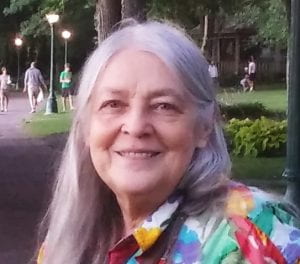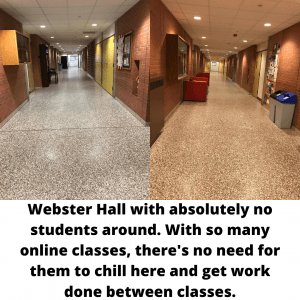The SCSU English Department of Graduate Studies offers multiple assistantships to their students. Students who are a 191 GA or Graduate Assistant, are responsible for teaching one section of our first year composition course, English 191, as well as planning lessons, meeting with students, and grading. Teaching 191 is not the only GA position offered by the college/ For more information about becoming an SCSU GA, check out the English Department’s webpage.
This week, we are happy to feature writing from Ulysses Texx, a current GA.
Ulysses Texx, one of our second-year graduate assistants, shared some insight on teaching our first year composition course, ENGL 191 – Introduction to Rhetorical and Analytical Writing. Ulysses is one of our English graduate students. His students sure are lucky to have him as their instructor!
Check out what he has to say below!
What defined being part of the cohort of ENGL 191 GTAs last year was the community building of it all. Last year, eight of us shared an office, seeing each other almost every day of the week. Events hosted by last year’s second years often included former GTAs. The then-current cohort, most of which lived in the area and had been at St. Cloud for a while, was key to making me, the Twin Cities outsider, feel comfortable where I was, geographically, academically, socially.
From this community, our teaching emerged. We shared assignments and slides, sure, but also ideas about how to connect with our students. Games, discussion topics, conference days, reading activities, and other ways of making meaning passed from our lips and OneDrives easily and often. They connected us and the 200 students we taught collectively every semester.
Having the strength of a community influenced how I stood in the classroom, how I moved as I presented new topics and shared stories and food. I tried to use my energetic presence (and almost all my time) as fuel for their curiosity, knowing that students had acquaintances and friends in my section and across the other GTA, adjunct, and professor-led sections that they could interpret college life and its character (and often characters) with. I know they did, too—some introduced their friends to me whenever we bumped into each other on campus.
It’s difficult to give the fall semester such a charged impression. I’m back in the Cities, in my personal office, which I use infrequently, mostly as a background for Zoom and Microsoft Teams. On campus, I have an office to myself that I’ve seen once, when I reapplied the decor I took home from the cohort office in a panic in March to its dusty shelves and the side of the blond door facing the forlorn first floor hallway.
I have no other English teachers at home and have little patience for online meetups. I bounce ideas off my brother when he calls—he’s taken an equivalent of this class before—and my partner, who remembers taking an English class before. I’ve seen my current cohort maybe ten times this semester. I feel more a part of the pedagogies of nature and self-care I’m learning from the naturalists I read in the mornings and my cats as they frolic on the porch.
This cultural disconnect drives me to be as responsive to students as I can. Readings have been adjusted to their majors and are available free online, workload both laidback and rigorous. They write every week—often an essay—and I respond with an essay of my own on every submission received. I have strict deadlines but also an ear to lend to their lives. We’re taking our (structured) time making meaning out of everything. While we’re so isolated, it’s the only way we—my students, self, and cohort—can recreate the community so fundamental to 191 and our experiences at SCSU as students.
~Ulysses Texx





















